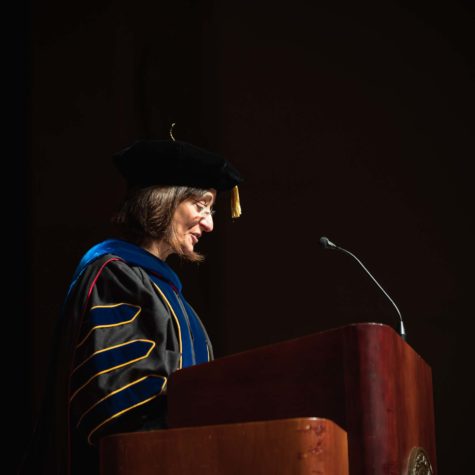TCU Undergraduate Council to vote on graduation reduction Friday
Spring 2016 commencement. (TCU 360 file photo)
Published Nov 10, 2022
Graduation requirements that administrators hope will attract and maintain more transfer students will be voted on this Friday by the undergraduate council. The provost office has proposed reducing graduation requirements for undergraduates so that transfer students can progress more quickly to meet degree requirements. The proposal was discussed during the October meeting of the Undergraduate Council, but no vote was taken. The proposal has been met with some resistance from faculty members. “On the one hand there’s support because we want to make these students successful, we want to do what we can to help students,” said Faculty Senate Chair Dr. Jill Havens, senior instructor and director of British and postcolonial studies. “But then there’s also concern that is this lessening the value of a TCU degree? It’s kind of ‘what’s the sacrifice here?’” Havens was a member of the committee this past summer and discussed ways to help transfer students progress and stay at TCU. She said she supports the proposal, because she knows many transfer students who have had difficulties graduating on time. Of the 443 students who transferred to TCU in the fall 2020 semester, only 9.2% graduated in two years and just over 52% graduated after three years, according to TCU Institutional Research. “There’s a couple requirements or policies that we have that are inhibiting the success of transfer students,” Provost Teresa Dahlberg said last month during the student town hall. 



